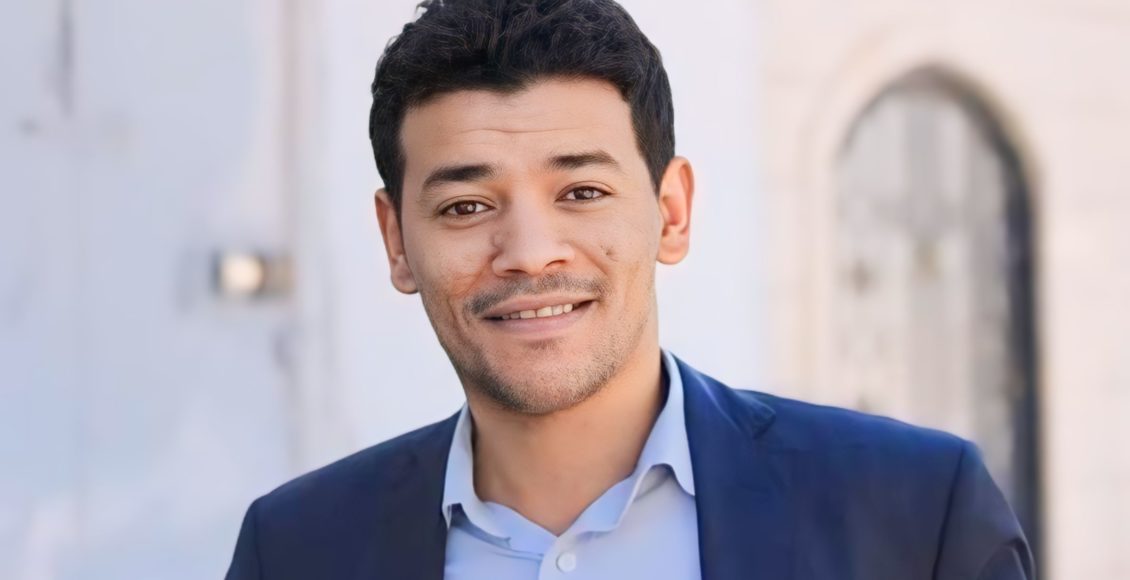
Al-Absi The journalist who delved into the oil file and was assassinated by corruption sharks with a chemical compound
Context of the story April 26, 2024
Mohammed Abdo Al-Absi
Violation time: December 20, 2016
Violation Location: Sana’a
Violation Type: Assassination/Killing
The perpetrator of the violation: Houthi group ‘Ansar Allah’
Journalist Mohammed Abdo Al-Absi is the most Yemeni journalist who has delved into the file of rampant corruption in the oil sector. Throughout his years in journalism, Al-Absi produced a series of in-depth reports on corruption deals between foreign companies and government influencers during the era of former President Ali Saleh. Such as the sale of gas to the South Korean government at low prices in exchange for personal privileges and commissions for Yemeni officials. In 2010, Al-Absi founded the “National Coalition against the LNG Deal and Suspicious Deals.“
After the Houthi group seized state institutions in 2014, the journalist, who was 33 years old at the time, was able to access very dangerous information left behind by a group of corrupt oil tycoons, after which Al-Absi was subjected to a professional assassination via a chemical compound on December 20, 2016, in the Yemeni capital Sana’a.
Al-Absi, through his investigative professional activity, had revealed the establishment of a new network of oil traders affiliated with the Houthi group ‘Ansar Allah’, and when he published materials confirming this, he was subjected to problems such as smashing the windshield of his car or venting the wheel by puncturing the tire.
Journalist Al-Absi began to worry and in his last days, he informed a group of his friends about this. He provided them with information about corruption in the oil file, reducing publication in his name, however, he did not stop tracking the threads of corruption in the oil derivatives market, but he was under surveillance, from the Houthi apparatus and others. And instead of just making problems to him, they took his life later.
According to details documented by the Free Media Center for Investigative Journalism, Al-Absi was working on an investigation related to state security, and was waiting to receive important documents about smuggling weapons and bargaining over an oil tanker and toxic and dangerous substances used in the manufacture of weapons that reached the Houthis through these tankers.
The Houthis got into a dispute with a company belonging to the sons of the late businessman Tawfiq Abdurrahim, one of the main reasons for the dispute revolves around oil deals that go to the UAE through a company belonging to the Houthi spokesman named Mohammed Abdussalam, at that time the Houthi group detained an oil shipment belonging to Ammar Tawfiq Abdurrahim and demanded a huge amount of money in exchange for allowing the tanker to be unloaded.
Al-Absi intervened to find out what is going on between Ammar Tawfiq and the Houthis. Mohammed Al-Emad, the Houthi journalist who will start a channel later, was working on the issue of the seized oil shipment to obtain a sum of money, in addition to one of the representatives of the Houthi spokesman, a person named Shafie Al-Naji, another named Daghsan, and others. The Houthis did not agree with Ammar Tawfiq and as a result he was kidnapped.
Ammar Tawfiq, was one of the sources providing journalist Mohammed Al-Absi with documents related to oil corruption. Al-Absi did not know that the Houthis kidnapped the businessman and so he kept sending messages to Ammar Tawfiq’s phone while the man’s phones were in the hands of the well-known Houthi leader, Abu Ali Al-Hakim. Ammar did not reply , which surprised Al-Absi, who received a late message: It seems that Mohammed Al-Emad turned against you and reported about you.
It seems that the Houthis knew the files that Al-Absi was working on, they put Ammar Tawfiq under house arrest, and the day before Al-Absi’s assassination, he was summoned to the house of Abu Ali Al-Hakim, and there he met Ammar Tawfiq and the Houthi leader, according to the sources, but no one knows what happened.
The assassination day
Journalist Al-Absi usually meets his friends outside his house. He chews Qat at a friend’s house or in a well-known rest lounge in the middle of Sana’a. After that, he has a cup of milk tea at a specific café that he goes to almost every day , then he goes to a restaurant to have dinner and returns home.
And that’s what happened, on December 20, 2016, Al-Absi left the rest lounge, with a relative just before sunset , went to the Café , ordered a cup of tea and handed it to his relative and asked the waiter for another cup ‘double’.
After that, he went to dinner and then returned home. Shortly after, “he was sweating abnormally in the extreme winter cold in Sana’a,” the journalist’s sister told Free Media, after that: “We heard his wife screaming, so we rushed to his room and saw him convulsing, his eyes were open, we tried to help him but he did not respond to us.” “A strong yellow foam was coming out of Mohammed’s mouth, and we couldn’t carry him without help, because his body had become heavier, and when we arrived at the hospital near the house, his body was blue, the doctor told us he had died,” Al-Absi added .
One of those who had been hanging out with Mohammed recently, told the journalist’s sister: “Your brother died naturally , do not open this topic, if it turns out that he died because of drinking it will be a scandal.”
The news that Al-Absi’s relative had similar symptoms that occurred to the journalist, the family doubted that the death was natural, despite the advice of suspects and their pressure on the family to bury him, but the family refused. The family insisted on a forensic autopsy: “Let it be a scandal.” Others told the family that Al-Absi did not have those files that warranted his death, and that Mohammed died naturally, and some of them asked the journalist’s sisters to close the case : “You can be killed after your brother.”
According to the autopsy, Mohammed’s body was burnt from the inside, the family took two samples from the body for examination in the Jordanian capital, Amman. The test showed that the journalist’s blood contained 67 percent carboxyhemoglobin, enough to cause death. The examination indicated that Mohammed Al-Absi died of carbon monoxide.
The Houthi Criminal Investigation Department did not take the necessary procedures to investigate the assassination of Al-Absi. A criminal investigation officer who went one day to the rest lounge where the journalist was sitting to chew qat, the next day, the officer came to tell Al-Absi’s sisters: “Behind the place where your brother sits, there is a generator, carbon monoxide comes out, and your brother inhaled it.” But the officer did not say why no one died or was injured of the people who were in the rest lounge, other than Al-Absi and his relative.
According to expert analysis and conclusions we reached, Al-Absi was assassinated by a chemical compound placed in food or tea, with the effort the chemical is metabolized in the body and turns into carbon monoxide leading to death.
The Houthi-run Public Prosecution in Sana’a informally informed Al-Absi’s family and defense team that it had issued a decision to close the case file for lack of evidence.
One of the lawyers participating in the defense team (whom we cannot reveal his name for security reasons) said that after being informed of the decision, “we submitted a request to the prosecutor to hand us a copy of the decision so that we could take action to appeal it, and we find the statements of officials contradicted between those who deny issuing any decisions in the case and those who state that the case file does not exist in the first place.”
It is worth mentioning that the prosecution did not question the suspected names affiliated with influential leaders in the Houthi group..
*The Free Media Center for Investigative Journalism keeps intertwined information and details in the case of the assassination of colleague Al-Absi, which we will publish later to benefit the procedures for achieving justice and punishing those involved.
Note
This brief summary is part of the “For the Truth” project, within which an in-depth report on the situation will be published during the current year 2024.

